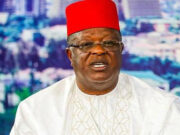Power Generation Companies (GenCos) have issued a stark warning of a potential nationwide blackout over an outstanding N4 trillion debt owed to them by the federal government.
In a statement released by Col Sani Bello (rtd), Chairman of the Board of Trustees of the GenCos, the companies expressed frustration over what they described as a systemic neglect in settling payments for services rendered, despite their ongoing efforts to expand power generation capacity.
“The crises from cash liquidity are on the top burner and have reduced GenCos’ ability to continue to perform their obligations, thereby threatening to completely undermine the electricity value chain,” the statement read.
According to the GenCos, the worsening liquidity crisis in the Nigerian Electric Supply Industry (NESI), coupled with the lack of secure financing and absence of firm contracts, has stalled operational planning.
“GenCos’ expectations of being settled through external support, such as the World Bank PSRO, have also been dampened due to other market participants’ inability to meet their respective Distribution Linked Indicators (DLIs) as enshrined in the Power Sector Recovery Programme (PSRP),” the statement added.
Another major challenge, they noted, is the lack of access to foreign exchange.
With key operational and maintenance needs priced in dollars, GenCos are struggling to meet these obligations amid the current economic climate.
The companies reported that revenue collections in 2024 dipped below 30%, and the trend appears to be continuing into 2025.
“GenCos are currently owed about N4tr (N2tr for 2024 and N1.9tr in legacy debts). No possible solutions, including cash payments, financial instruments, and debt swaps are in sight.”
“The 2025 government budget allocates only N900bn, raising concerns about its adequacy to cover arrears and future payments,” the statement further noted.
They are calling for an urgent payment plan to clear the backlog of unpaid invoices.
Their demands include full and immediate payment under the waterfall arrangement and a comprehensive financing strategy to support the Nigerian Electricity Regulatory Commission’s (NERC) Supplementary Order to the MYTO and the 2024 Distribution Revenue Order (DRO).
DAILY GAZETTE learned that the challenges facing the power sector are multifaceted.
Aside from government debt, GenCos are also battling a 35% loss in revenue due to Aggregate Technical and Commercial losses (AT&C), which has led to underpayment for gas supply — crucial to the 85% of Nigeria’s power generation that relies on thermal plants.
The liquidity crisis is also hampering investments, with both hydropower and thermal power operators unable to attract domestic or foreign capital to revamp outdated infrastructure.
An industry analyst, who preferred not to be named, told our reporter that the government currently settles only 40% of GenCos’ invoices.
“In any business, when you sell and you are only able to get 40 per cent, you are not doing well. They have been very patient with the government because what is holding down those invoices is the tariff shortfall and market shortfall. So the government has not been forthcoming with fulfilling its own side of the bargain,” he said.
He warned of dire consequences if the GenCos follow through with their shutdown threat.
“They have sold this power, we have been owing the GenCos since the time of Fashola (former minister) and this is not sustainable. I am not advising them (GenCos) to shut down, let them sit down with the government,” he cautioned.
Meanwhile, the Ministry of Power has acknowledged the concerns raised.
Bolaji Tunji, Special Adviser on Strategic Communications and Media Relations to the Minister of Power, said the government is aware of the debt, which stems from subsidy commitments.
“Parts of the debts are legacy debts, which were on the ground before the Minister of Power assumed office. The Minister of Power has repeatedly harped on this, knowing the implication of such debts to the operations of the various power sector stakeholders, especially the GENCOs.”
“The Minister of Power is very much concerned. The issue is being discussed with the Ministry of Finance, making a case for how the debt must be paid. We expect the Ministry of Finance to take action on this soon,” Tunji assured.

















